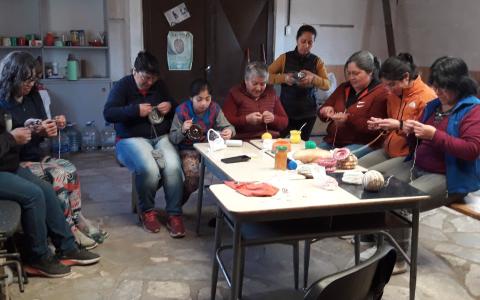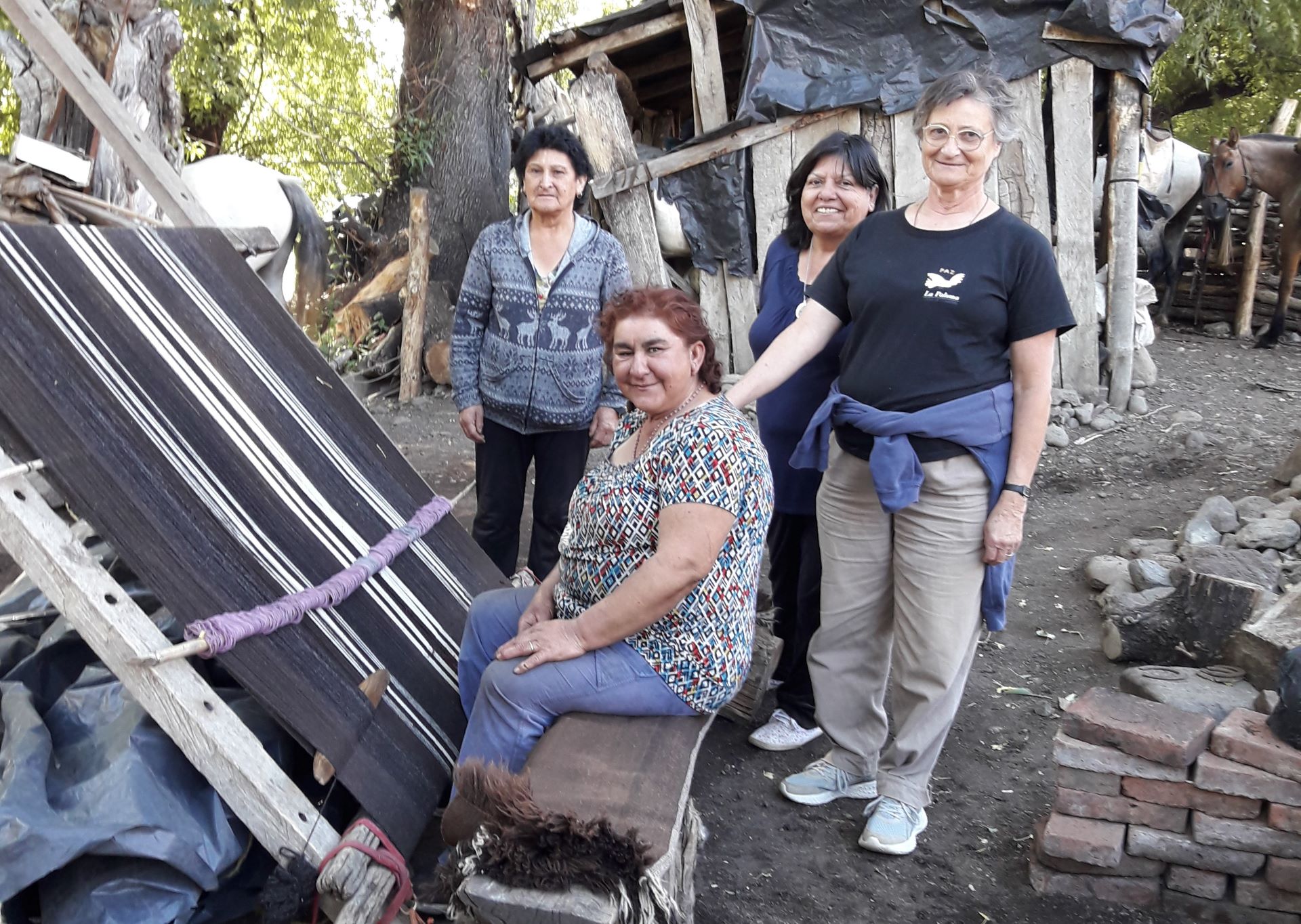!["This [transhumant] culture, with its amazing ability to survive, is teaching me a lot about the message of Jesus. These people feel at one with nature: the sun, the winds, the snow, the slopes, streams and peaks, as well as with the animals and the wood; everything is part of their environment." — Sr. Ana María Siufi (Ana María Siufi)](/files/2024-04/Trans%204.jpg)
"This [transhumant] culture, with its amazing ability to survive, is teaching me a lot about the message of Jesus. These people feel at one with nature: the sun, the winds, the snow, the slopes, streams and peaks, as well as with the animals and the wood; everything is part of their environment." — Sr. Ana María Siufi (Ana María Siufi)
Transhumant [Nomadic] life in the Argentinean mountain range of Neuquén is very hard. This practice, which involves moving "through humus" or soil, is part of life very close to the village where I live.
The locals move their cattle in search of pasture and water high in the mountains in this region when summer arrives, and stay there from December to March or April to fatten up the cattle.
The villagers ride for days and days accompanying the herd of goats, with some cattle, horses and perhaps sheep, as well as the inevitable dogs that help to keep the herd together as it slowly moves forward.
"These good shepherds live with solitude and silence, facing frustrations, losses, accidents, hopes and pains, all with patience and without haste, using their senses and intuitions." — Sr. Ana María Siufi

As part of her pastoral work with transhumant families, Sr. Ana María Siufi gives workshops, especially to women, which allows her to share life with them. (Ana María Siufi)
Nomadic life is not only for men. Many are accompanied by their wives and children, who manage the herds with incredible efficiency, as do the dogs, faithful and constant in their daily tasks. None of them are afraid of foxes, wild boars or pumas, which often lie in wait to feed on their goats, calves or foals. When they reach the summit, a precarious hut awaits them where they can sleep, and a fire to cook the food they carry, as well as the meat and milk of some animal.
When the warm weather has ended and before the snowfall, the transhumant families return to the valley where they have their homes for the cold months. Their herds will be sustained during the winter in the fields by the reserves they accumulated during the months of abundant grazing in the mountains.
Most of the people who practice the nomadic lifestyle in this region are of Mapuche descent. However, they do not always recognize themselves as part of these Indigenous people because colonization has diluted the identity of many of them. While many young people choose to go to the cities to study or to look for work, some choose to stay on their land to be shepherds, remaining faithful to a culture that gives sustenance and meaning to their lives.
Without a doubt, this culture, with its amazing capacity for survival, is teaching me a lot about the message of Jesus. These people feel at one with nature: with the sun, the winds, the snow, the springs, streams and peaks, as well as the animals and the woods; everything is part of their environment.
I conduct workshops in my pastoral work with transhumant families, especially women, which gives me the opportunity to share life with the families. A woman once told me that a friend was lonely in his field, so distressed and depressed that he laid down on the ground not knowing what to do. His horses saw him, came close to him, surrounded him, and bit at his clothes to urge him to get up. The peasant felt that they were saving his life.
"The majority of [nomads] in this region are of Mapuche descent. However, they do not always recognize themselves as part of these indigenous people, because colonization has diluted the identity of many of them." — Sr. Ana María Siufi

In the Argentinean mountain range of Neuquén, nomadic women weave the clothes their families will need. In the picture, some of them accompany Sr. Ana María Siufi, on the right. (Ana María Siufi)
They pastor their herd with dedication day and night, taking care of their animals or those entrusted to them by their owner. This task is rarely done individually, but with the help of family, friends, companions, dogs and horses, forming a community where they collaborate in different tasks and services. They share the risks, and also the bread, the fire, the water, the sacrifice and the occasional evening feasts with wine, barbecue, singing and guitar playing. Consumerism is unknown among these people, since they only consume what their most basic needs demand, and stoically endure hunger, thirst, fatigue and climatic conditions.
It is a contemplative life. They know how to read the signs of the weather, anticipating whether it will rain, snow or be windy. They recognize each plant, knowing which will feed them or heal them of different ailments. They listen attentively to the birds, the wind, the water, the puma or the dogs; they understand their horses and trust them. These good shepherds live with solitude and silence, facing frustrations, losses, accidents, hopes and pains, all with patience and without haste, using their senses and intuitions.
The vast majority of them are believers, with simple and deep faith that makes them entrust themselves to God every day, light candles, and celebrate feasts of saints or the Virgin with processions and prayers. They are especially devoted to St. Sebastian whose image is in countless hermitages scattered throughout the mountains and roads. Their whole life is a pilgrimage, trusting in those presences that strengthen and comfort them in their misfortunes. Death is experienced as a natural process, and the memory of the deceased is honored with the prayer of long wakes, burial ceremonies and mourning anniversaries accompanied by ancient prayers handed down from generation to generation.
The dark side of this life manifests itself in conflicts between neighbors or family members with hatred and resentment that cause them to hurt each other. In addition, alcoholism can affect their health and that of their families, as well as machismo and gender-based violence, which mark the behavior of many men and women.
Advertisement
This pastoral and pilgrim culture struggles to survive in the face of the dominant culture that makes it invisible and erases its values in order to arrogantly impose itself. Lyrics from the song "Piedra y Camino" by Atahualpa Yupanqui represent it faithfully:
From the hill I come down
road and stone
I bring entangled in my soul, life
and sorrow ...It is my destiny
Stone and road
from a distant and beautiful dream, life and
I am a pilgrim.Sometimes I'm like the river
I arrive singing
And without anyone knowing, lifeAnd I leave crying ...







